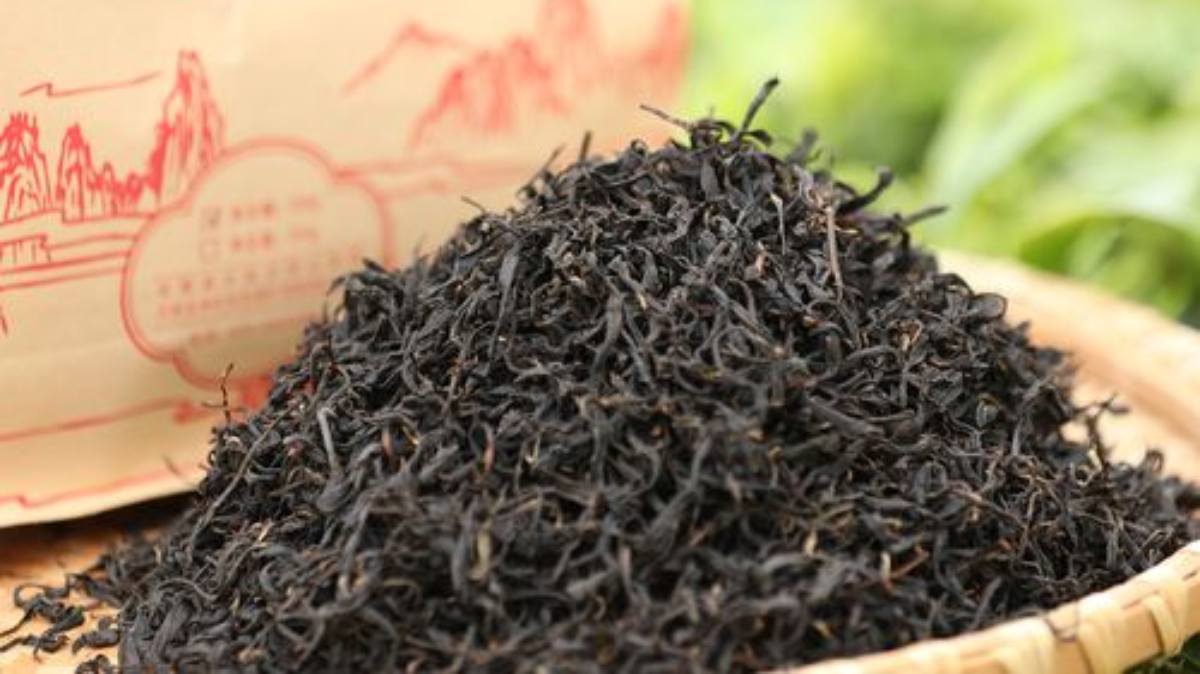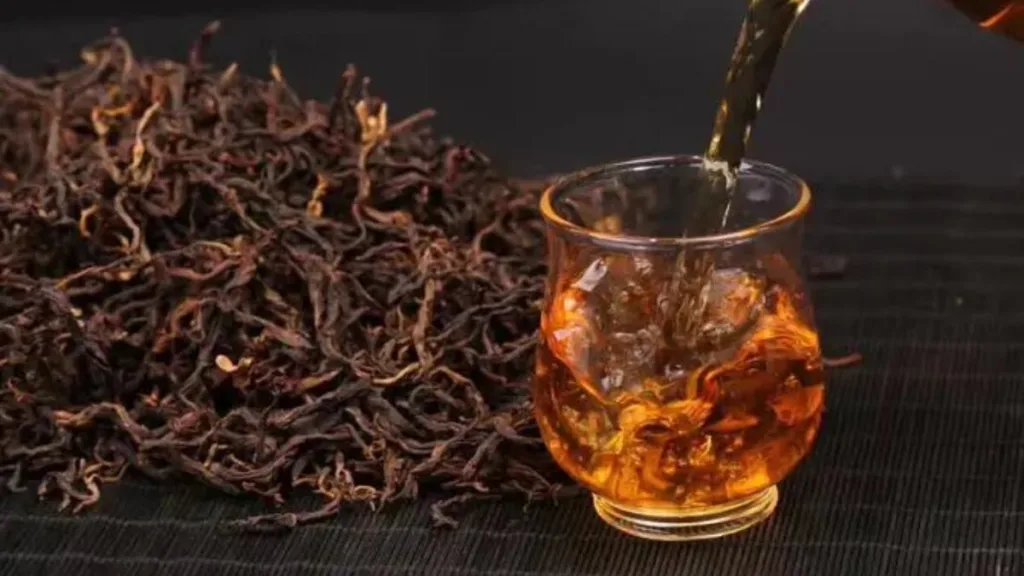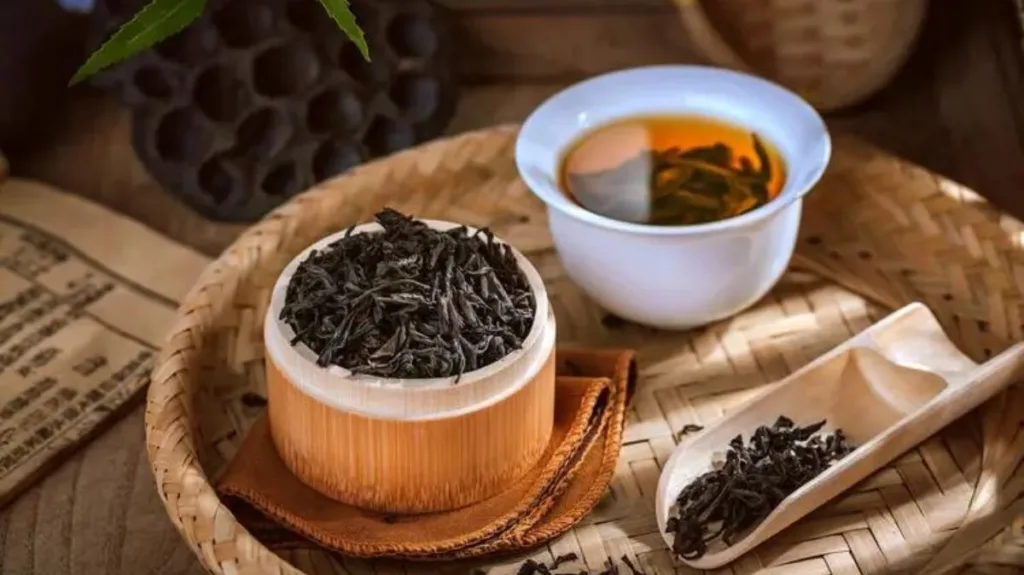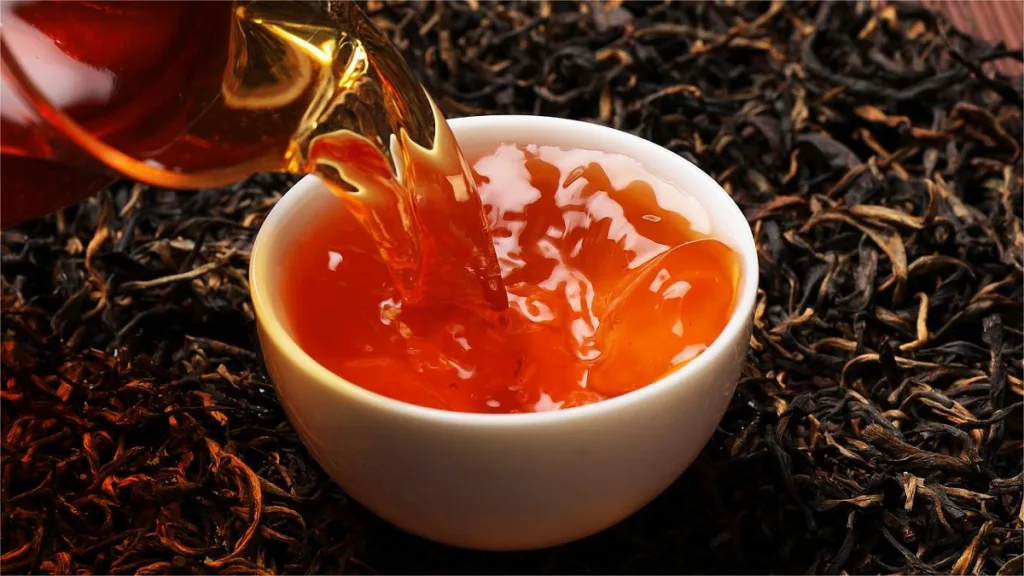Congou tea, often referred to as Gongfu tea, is a unique and prestigious variety of Chinese black tea. With its diverse range of types and origins, Congou tea has deep-rooted historical significance and plays an essential role in China’s rich tea culture. This article explores the origins, regional varieties, brewing methods, and health benefits of Congou tea, shedding light on its profound influence in the world of tea.
The Rich Tapestry of Congou Tea
Congou tea is a distinctive Chinese black tea variety known for its deep, complex flavors and exceptional craftsmanship. Hailing from various provinces in China, this tea showcases a wide range of regional varieties, each with its unique character. Some of the renowned types of Congou tea include Dianhong (Yunnan), Qihong (Anhui), Fujianhong (Fujian), Ninghong (Jiangxi), Yihong (Hubei), and many others.
Dianhong (Yunnan Congou)
Originating from Yunnan province, Dianhong is a black tea variety made from large-leaf tea trees. The tea leaves are plump, rich, and laden with golden tips, offering a distinctive floral and fruity aroma. Dianhong is often characterized by a bold flavor and a robust fragrance that is much appreciated by tea enthusiasts worldwide.
Qihong (Anhui Congou)
Qihong, or Qimen red tea, is produced in Qimen County, Anhui province. It is celebrated for its dark, glossy leaves and a unique fragrance reminiscent of honey or orchids. Qihong tea is often referred to as “Keemun” tea in the West and is held in high regard for its brisk and wine-like flavors.
Fujianhong (Fujian Congou)
Fujian province is home to various types of Congou teas, such as Zhenghe Congou, Bailin Congou, and Tan Yang Congou. Each of these teas has a distinct flavor and character, but they all share the craftsmanship and expertise of Fujian tea masters. They offer diverse aromatic profiles and are highly sought after in the world of black tea.
Ninghong (Jiangxi Congou)
Jiangxi province is known for its Ninghong tea, which is characterized by a sweet and mellow flavor. The tea liquor often possesses a rose-like hue, and the leaves offer a captivating visual appeal. Ninghong tea has earned a reputation for its exquisite taste and aroma.
Yihong (Hubei Congou)
Hubei province’s Yihong is a delightful Congou variety. It’s known for its rich, robust tea liquor, which sometimes exhibits a milky opalescence when cooled. This phenomenon indicates the richness and quality of the tea, making it a sought-after choice for tea connoisseurs.
A Journey Through History
The history of Congou tea is a captivating tale of innovation and craftsmanship. Before the late Qing dynasty during the Guangxu era, Qimen County, in Anhui province, primarily produced green tea and had no tradition of black tea production. It was in 1875 when a man named Yú Gānchén, who returned to his hometown in Qimen from Fujian, introduced black tea processing techniques. Yú Gānchén set up tea factories, experimenting with making black tea in Qimen and applying techniques inspired by Fujian’s black tea production.
The success of these early experiments and the outstanding quality of the teas led to an expansion of black tea production in the region. Yú Gānchén established the foundation for what would later become Qihong or Keemun tea, gaining international recognition for its unique flavor profile and fragrance. The “Keemun aroma” became a hallmark of Chinese black teas worldwide.
High-quality Qihong tea features slender, dark, glossy tea leaves and a deep red infusion. Its fragrance is often described as a mix of floral and fruity notes, and it occasionally exhibits a subtle rose-like undertone. This unique aroma is what earned it the reputation as “Keemun fragrance” and made it the preferred choice for the British “English Breakfast” tea blend.
Brewing Method of Congou Tea
Brewing Congou tea is a ritual that requires care and attention to detail to extract the fullest flavors and aromas. Here’s a step-by-step guide to brewing the perfect cup:
- Use Fresh Cold Water: Begin by pouring fresh, cold water into a kettle. The use of freshly drawn water is crucial, as it is rich in oxygen, allowing it to bring out the tea’s aroma effectively. Avoid using overnight water, reheated water, or water from a thermos, as these may not yield the best results.
- Heat the Water: Bring the water to a rolling boil. Heating the water is a crucial step in the brewing process as it prepares the water for extracting the tea’s flavors fully.
- Preheat the Teapot and Teacups: To ensure that the tea leaves can expand fully and release their flavor, preheat your teapot and teacups by pouring a small amount of hot water into them and then pouring it out.
- Measure the Tea Leaves: Carefully measure your tea leaves. For a stronger brew, use one teaspoon (about 2.5g) of Congou tea per cup. However, to fully appreciate Congou tea’s rich and nuanced flavors, consider using two teaspoons (about 5g) for two cups, allowing the tea’s original taste to shine through.
- Pour the Hot Water: When the water reaches a vigorous rolling boil and small bubbles appear, it’s the perfect time to pour it over the tea leaves in your teapot. This is ideal for Congou tea, as it releases its flavor best with this water temperature.
- Steep the Tea: Allow the tea to steep for the appropriate amount of time, which varies depending on the desired strength. Typically, steep for 2 to 3.5 minutes, but it’s best to refer to the tea’s package instructions for specific guidance.
- Pour and Enjoy: After steeping, pour the brewed tea into your favorite teacup. The shallow and wide shape of most teacups allows you to fully savor the fragrance and enjoy the mesmerizing hue of the tea.
- Add Milk or Sugar (Optional): If desired, add milk and sugar to taste. Congou tea is versatile, and it can be enjoyed with or without additions according to your preferences.
Health Benefits of Congou Tea
Congou tea offers numerous health benefits, making it a delightful choice for tea enthusiasts. Here are some of the potential advantages:
- Heart Health: Congou tea is rich in antioxidants, particularly theaflavins and catechins, which support cardiovascular health. Regular consumption can help lower blood pressure and cholesterol levels.
- Digestive Aid: The alkaline nature of Congou tea can help neutralize stomach acid, making it a suitable choice for alleviating heartburn and aiding digestion.
- Immune Boost: The tea’s polyphenols and flavonoids provide strong antioxidant and anti-inflammatory properties, boosting the immune system and protecting against common ailments like colds and allergies.
- Weight Management: Congou tea may assist in weight loss and the reduction of cholesterol levels. Its compounds help increase metabolism and facilitate the breakdown of fats.
- Mental Clarity: The caffeine in Congou tea provides a mild energy boost and enhances cognitive function, improving focus, memory, and alertness.
Congou tea is not just a flavorful and aromatic beverage but also a natural source of various health benefits. Incorporating it into your daily routine can offer a refreshing and wholesome experience.
In conclusion, Congou tea is a masterpiece of Chinese tea culture, boasting a rich history, diverse regional varieties, and a host of health benefits. Whether you prefer the bold flavors of Yunnan Dianhong or the fragrant elegance of Qihong, Congou tea is a testament to the artistry and craftsmanship of Chinese tea producers. Brewing and savoring Congou tea is a delightful experience that opens up a world of flavors and traditions, connecting you to the heart of China’s tea heritage.




